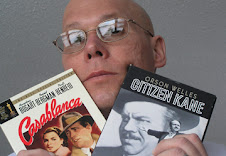
‘King’ serves viewer well with lots of plots
IVAN BARNEY (far left) in “I Served the King of England.”
“I Served the King of England” has precious little to do with a king or England.
But there are many other topics, like love, sex, hate, violence, work, relationships, advancement.
This film from the Czech Republic opens with main character Jan Dite, played at this age by Oldrich Kaiser, being released from prison in 1963. Why he was there, we don’t know.
He breaths the air of freedom and promptly moves into a wooded area, living in a decrepit old cabin.
The film is a comedy, but also political, a drama, even a fantasy.
The story is told in flashbacks, with the Dite character played as a youngster by Ivan Barney.
Young and wide-eyed, he seems a bit dense at first, but he seems to find a way to get the jobs and positions he wants, as well as the women.
As an old man, who works to build a road of stone, he thinks back to his storied life.
He spends many years working in upscale hotels, restaurants and resorts.
He marvels at the head waiter who can balance several dishes while dancing and dodging through the crowd. But when the waiter does drop a plate, he goes completely undone and leaves the restaurant with a few inches of china rubble.
Dite becomes the head waiter.
But no matter what formal position he has, living and working with the rich and famous, something happens that makes him decide to leave each job.
Dite also has a certain amount of disdain for the rich. He enjoys throwing coins on the floor, just to watch the wealthy on their hands and knees scraping up the loose change.
Dite gets involved with a young lady who comes into one of his establishments who turns out to be a prostitute. They end up with a relationship that is beneficial for both. He learns what women want and ends the evening with rose pedals all over the young lass.
Eventually he meets a woman, played by Julia Jentsch, who is sympathetic to the new rulers of the country, the Nazis.
She is so fiercely loyal she goes off to fight in the war. Meanwhile, his hotel is turned into a sort of resort of young, beautiful Aryan girls who are trained to be breeders to continue the German race. The girls swim and bounce about in the nude all day in front of Dite, as if he isn’t there. But they run and hide when other males appear.
Eventually, his young bride re-appears. They decide to marry but Dite must show his sperm is of proper quality to impregnate an Aryan girl. There are some pretty hilarious antics here, including some involving girlie magazines and a sympathetic older lady.
After the marriage, wife wants to give Adolph another pure Aryan, so the two jump in the sack. But during sex, wife insists on having in full view a large Monty Pyhonesque head shot of Hitler.
Back from the war, the Jentsch character shows millions of dollars worth of stamps she gleamed from Jewish homes.
Now Dite is no fan of the Nazis but goes along with his wife and takes the stamps and runs, after the war, to open his own palatial hotel. Unfortunately, wife doesn’t live to see the remnants of her wealth.
And when Czechoslovakia goes Communist, well, let’s just say, easy come, easy go.
“I Served the King Of England” is trotted out in a leisurely pace and covers much ground over the span of the film.
We see greed, hatred, love, determination. It is both funny and horrific. At one point, Dite seems to be noncommittal to his wife’s love of the Nazis, but suddenly grabs the sandwich of one of the elite and starts running down the railroad tracks, trying to give it to emaciated Jewish prisoners being carted off to their deaths.
Like many foreign films, this is one of those pictures you won’t easily see being translated into an American film. If you are a student of history, or people, this is a great movie to watch.
I SERVED THE KING OF ENGLAND
• Directed by Jiri Menzel, written by Bohumil Hrabal and Menzel
• Rated R for content and nudity
• Runtime: 120 minutes
• 3 1/2 stars out of 4




